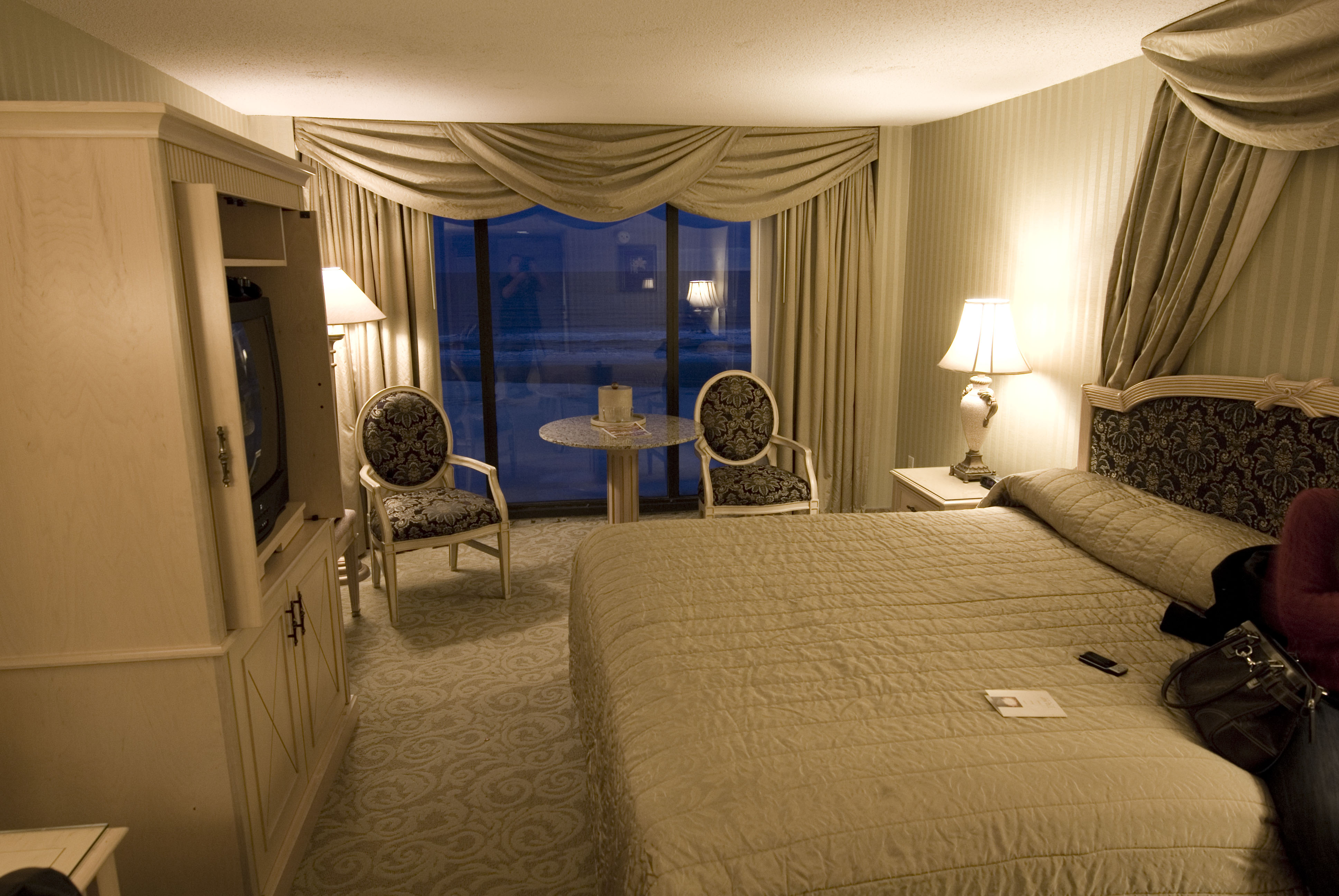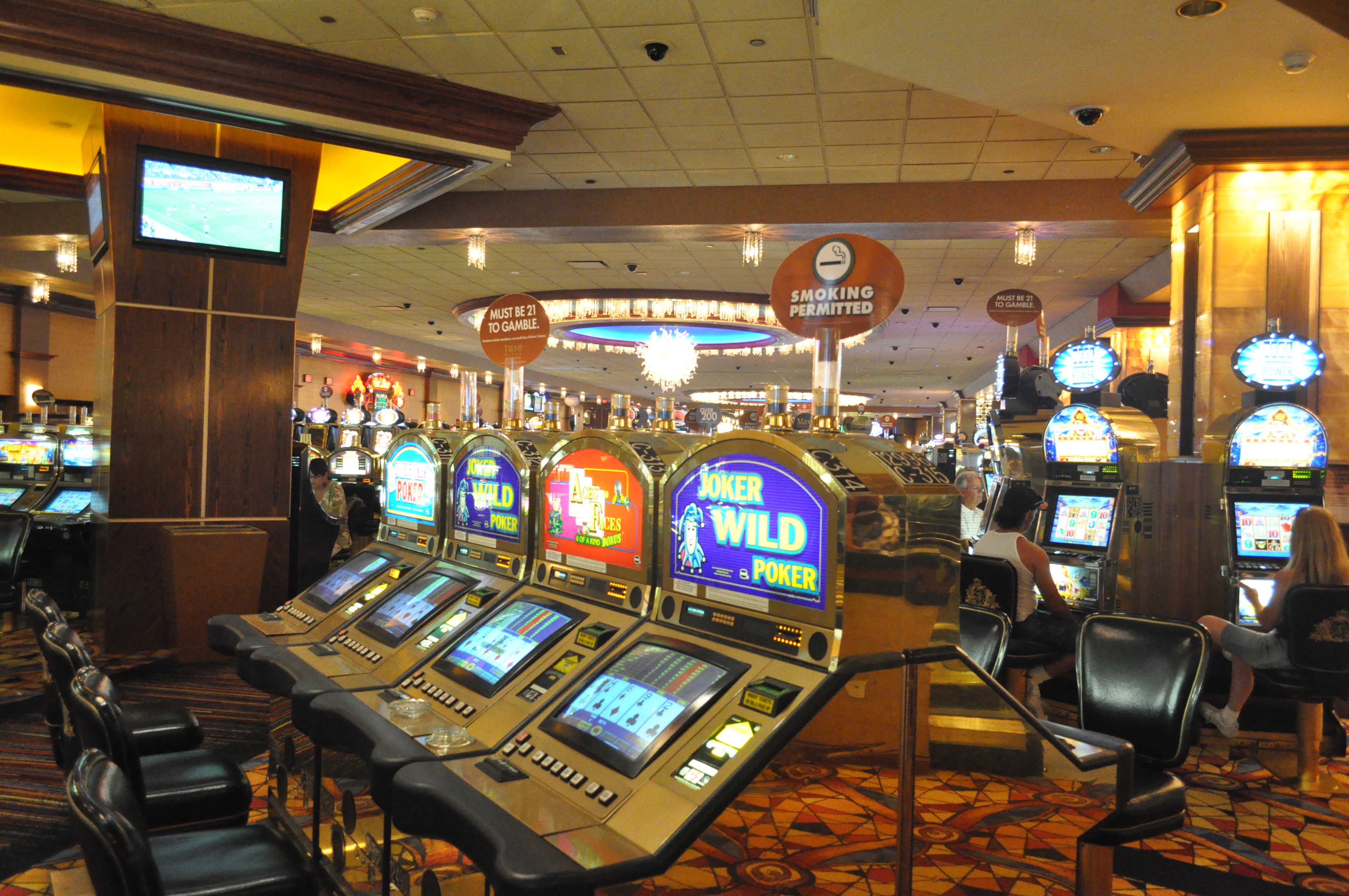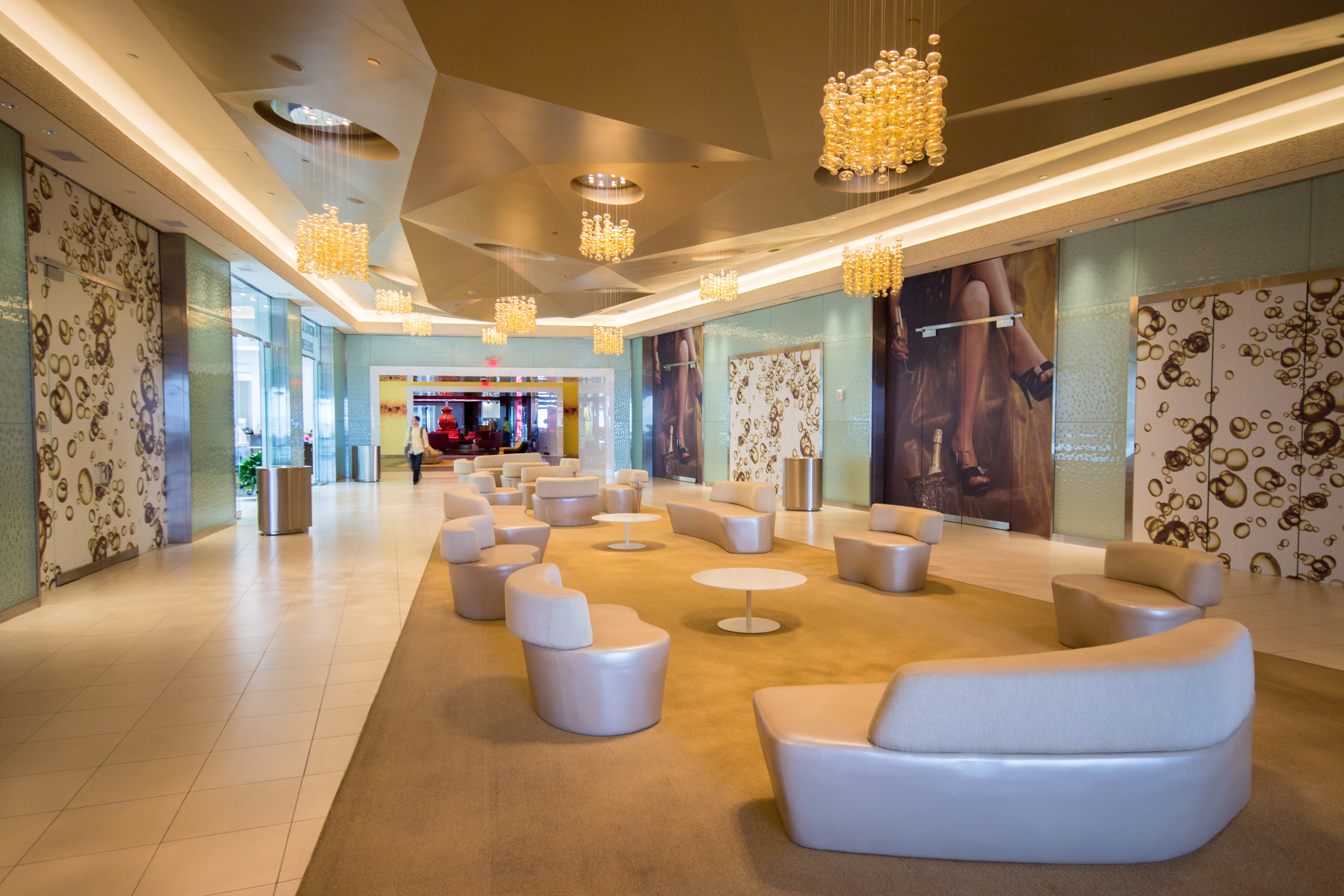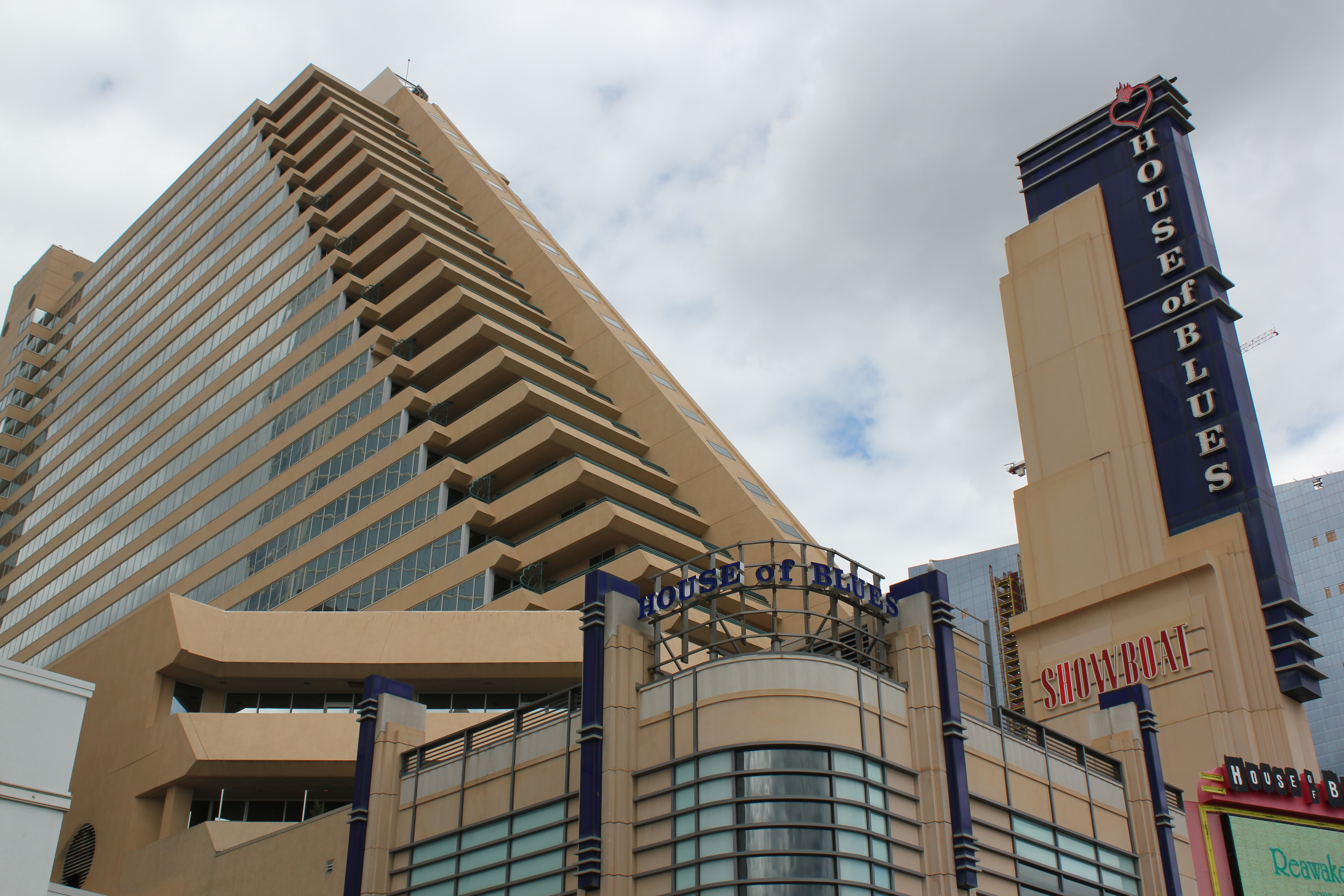Yesterday’s announcement makes the casino, once dubbed the "eighth greatest wonder in the world," the fifth to close in Atlantic City since 2014. Four casinos shuttered within that year, all but ending the resort town’s history as the ritzy gambling mecca of the Mid-Atlantic.
Billionaire owner Carl Ichan bought Donald Trump’s remaining 10 percent ownership stake of Trump Taj Mahal in January 2016, saving the casino resort from bankruptcy. Yet despite plans to invest $100 million in renovations, Icahn said the recent month-long strike by union workers employed by the resort was to blame for the casino’s closure, according to the Press of Atlantic City.
Critics and employees say Icahn is just pointing fingers. Regardless of who's or what is to blame, the closing of the grand casino resort is a blow to the already struggling town that itself has teetered on the brink of bankruptcy since 2015. The closure also marks the last remaining link to Trump's reign over Atlantic City during the 1990s when he owned three casinos on the boardwalk.
As the Trump Taj Mahal takes its final bow, here is a look back at the five casino resorts of the Atlantic City boardwalk, from start to finish.

The Trump Taj Mahal in 2011. Courtesy of Flickr user Shabai Liu.
Trump Taj Mahal (1990-September 2016)
When it was built in 1990, the 120,000-square-foot Trump Taj Mahal claimed to be the biggest casino in the world (it wasn’t) and called itself the "the eighth greatest wonder of the world." Owned by Donald Trump, the resort featured 2,010 rooms, multiple restaurants, and of course, thousands square feet of gaming space.
Yet money problems began to plague the casino within a year that it opened. According to Philly Mag, Trump couldn’t afford his $900 million per year payments. While it was the highest-grossing casino in Atlantic City until 2003, it eventually filed for bankruptcy in 2014 until billionaire Carl Ichan took over, keeping Trump's namesake.



Trump Plaza was the first casino resort in Atlantic City owned by Donald Trump. Courtesy of Flickr users Anthony Quintano and natalie419.
Trump Plaza (1984-September 2014)
Trump Plaza opened on May 15, 1984 and became the first Trump-owned casino resort and the largest in the city, clocking in at more than 91,000 square feet. The 39-story black and white building housed 60,000-square-feet of gaming space and 600-plus hotel rooms.
At the start of construction, the Philadelphia Inquirer reported that Trump Plaza was poised to be the "most striking" of all casinos on the boardwalk, with its glass-enclosed rooms looking over the ocean. Over the years it underwent a couple of renovations and expansions, but by 2011 Trump’s company looked to sell the casino. In 2014, it became the fourth casino to close in Atlantic City that year.

Revel cost $2.4 billion to build and closed after just two years. Courtesy of Wikimedia Commons.
Revel (2012-September 2014)
The shortest-lived casino in Atlantic City’s history, Revel barely lasted two years before closing up shop. Local firm BLT Architects was the architect of record for a majority of the project, which featured 1,399 hotel rooms, 13 restaurants, two night clubs, and swimming pools. It was the tallest building in Atlantic City—and at $2.4 billion the most expensive.
Yet despite drawing big-name acts like Beyonce and Maroon 5 to its doors, the resort couldn’t make its payments and filed for bankruptcy in 2013. On September 2, 2014, it became the third casino to close in Atlantic City that year.




Courtesy of Flickr user Kevin Jarrett.
Current owner Glenn Straub, who bought Revel for $82 million in 2016, has thought of a long list of ideas for Revel’s comeback, ranging from a medical tourism resort to housing for Syrian refugees to today’s plan: A resort with an equestrian facility and water park.
The plan to open the resort this past June came and went, and now Straub is aiming for a fall opening, dependent on licensing and inspections.

The Showboat Casino closed in August 2014. Philly developer Bart Blatstein bought the property and has re-opened it as a hotel. Courtesy of Wikimedia Commons.
Showboat Casino (1987-August 2014)
The Showboat opened in 1987 with a 60,000-square-foot casino and a bowling alley. For the most part, the resort had a successful tenure, despite changing ownership multiple times and undergoing multiple renovations and expansions. Yet in the summer of 2014 owner Caesars Entertainment announced it would close the Showboat in order to "stabilize their other Atlantic City properties."
It is, however, one of the two casinos that’s seeing some new life on this list. Though the original plan for Stockton University to turn the Showboat into a dormitory, it ultimately sold the property to Philly developer Bart Blatstein in 2016 for $23 million. Blatstein re-opened Showboat just this past July as a hotel sans casino. In his announcement, the developer said, "There’s a lot more coming. This is the start of a much greater plan."

Atlantic Club Casino Hotel underwent many names over the years, including Bally's, the Hilton, and finally, the Atlantic Club Casino Hotel. Courtesy of Wikimedia Commons.
Atlantic Club Casino Hotel (1980-January 2014)
Of the five now-closed casinos, Atlantic Club Casino Hotel was the first to open and first to close. The casino has undergone a list of names and owners, including Golden Nugget, Bally’s, Hilton, ACH Casino Resort, and finally, the Atlantic Club.
At about 75,000 square feet, Atlantic Club was the smallest of the five casinos and the least flashy, earning the reputation for being a "locals only" casino.
The hotel closed in January 2014, but by 2015 the property showed some promise with plans for an 81,000-square-foot waterpark gaining traction. Yet despite the Casino Reinvestment Development Authority approving the park in July 2015, the deal between the casino owner TJM Companies and waterpark developer Endeavor fell through by January 2016 when Endeavor failed to come up enough funds for the project.
Today, the Atlantic Club Casino Hotel is back on the market, with TJM Companies accepting offers.
Not all is lost in Atlantic City, however. Just days before the Trump Taj Mahal announcement, Borgata Hotel Casino & Spa announced it had inked a deal with MGM Resorts Luxury Destination. MGM officially acquired the Borgata and its 2,100 hotel rooms, 160,000 square feet of gaming space, retail, and restaurants for $900 million.
/cdn.vox-cdn.com/uploads/chorus_image/image/50294459/2691662830_212c6eae38_o.0.0.jpg)